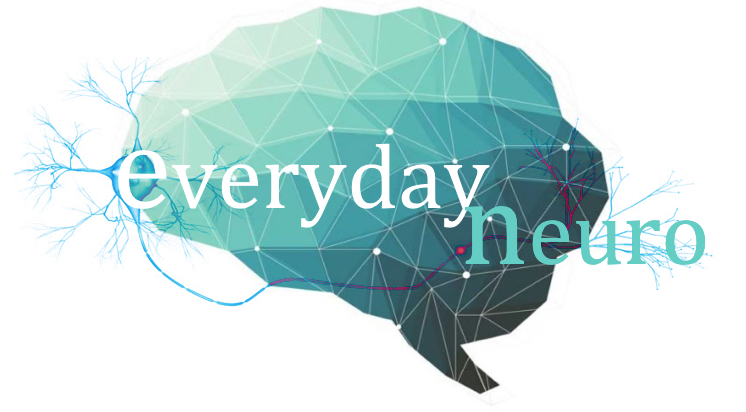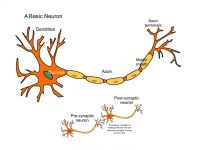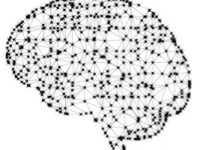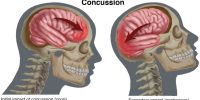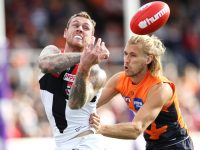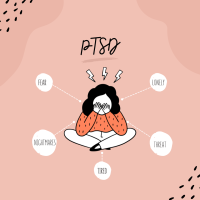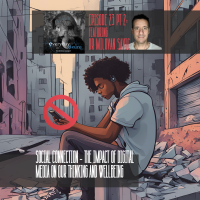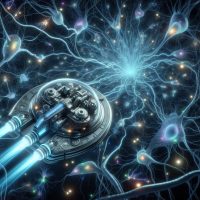EN001: An Introduction to the Human Brain
Physics of brain wrinkles copied in a jar
Features the work of Tuomas Tallinen and colleagues
Suzana Herculano-Houzel: The human brain in numbers: a linearly scaled-up primate brain
EN002: The Benefit of Exercise on Cognition in the Older Adult Brain
Patrick Smith and colleagues (2010) Aerobic exercise and neurocognitive performance: a meta-analytic review of randomized controlled trials.
Erik Ahlskog and colleagues (2011) Physical Exercise as a Preventive or Disease-Modifying Treatment of Dementia and Brain Aging
Kirk Erickson and colleagues (2011) Exercise training increases size of hippocampus and improves memory.
EN003: How Staying Active and Sociable Supports Memory and Reduces Anxiety in Older Age and in Alzheimer's Disease
Trait Emotional Intelligence Questionnaire (TEIQue)
Alzheimer’s Association (Global)
Dementia Alliance International
Alice Hollamby and colleagues (2017) Increased Physical Fitness Is Associated with Higher Executive Functioning in People with Dementia
Dr Debra Sheets: Voices in Motion – An intergenerational Choir
EN004: Brain Injury, Cognitive Functioning and Concussion in Sport
Incidence of TBI
Rita Nguyen and colleagues (2016) The International Incidence of Traumatic Brain Injury: A Systematic Review and Meta-Analysis
Coup Contrecoup injury diagram (click on the image to the left)
Makdissi and colleagues (2001). Computerised cognitive assessment of concussed Australian Rules footballers
The Concussion Legacy Foundation – CTE
Sport Related Concussion Consensus Statement from Berlin 2016 meeting
Concussion in gridiron study
Please email Brodie if you would like to volunteer or have a query about the 2018 Concussion in Australian Gridiron study. Brodie and the team would love to hear from you.
EN005: How to Become an Expert - A Collaboration Between Attention, Working Memory and Executive Function
Brooke Macnamara and colleagues (2014) Deliberate Practice and Performance in Music, Games, Sports, Education, and Professions: A Meta-Analysis
Fernand Gobet. (2015). Understanding expertise: A multidisciplinary approach. London: Palgrave.
Anne Treisman: Treisman’s Attenuation Theory
EN006: How Diet Affects Cognition - Exploring the Consumption of Caffeine, Alcohol and the So-called Western Diet
Eatwell Guide – diagram
WHO: Nutrition: 5 keys to a healthy diet – diagram
Frank Q. Nuttall (2015) Body Mass Index Obesity, BMI, and Health: A Critical Review. Nutrition Today; 50(3): 117–128.
Brain regions: Nucleus Accumbens and Amygdala
Kristina Rapuano and colleagues (2017) Genetic risk for obesity predicts nucleus accumbens size and responsivity to real-world food cues. Proc Natl Acad Sci U S A. 114(1):160-165.
Amy Reichelt (2016) Adolescent Maturational Transitions in the Prefrontal Cortex and Dopamine Signaling as a Risk Factor for the Development of Obesity and High Fat/High Sugar Diet Induced Cognitive Deficits. Frontiers of Behavioural Neuroscience. 10:189.
B.F Skinner (1938) Operant Conditioning
Erin Richard and colleagues (2017) Alcohol Intake and Cognitively Healthy Longevity in Community-Dwelling Adults: The Rancho Bernardo Study. Journal of Alzheimer’s Disease. 59 (3) 803-814
Simone Cappelletti and colleagues (2015) Caffeine: Cognitive and Physical Performance Enhancer or Psychoactive Drug? Current Neuropharmacology. 13(1): 71–88.
Baker IDI Heart and Diabetes Institute: Diabetes: the silent pandemic and its impact on Australia
EN008: Autobiographical Memory - How Good is Your Memory about You?
Image of ventromedial prefrontal cortex (vmPFC)
Elizabeth Parker and colleagues (2006) A Case of Unusual Autobiographical Remembering
Aurora LePort and colleagues (2012) Behavioral and neuroanatomical investigation of Highly Superior Autobiographical Memory (HSAM)
Dr Craig Stark (YouTube clip)
Larry Squire (2009) The Legacy of Patient H.M. for Neuroscience
Daniela Palombo and colleagues (2015) Severely deficient autobiographical memory (SDAM) in healthy adults: A new mnemonic syndrome
Rachael Elward and Faraneh Vargha Khadem (2018) Semantic memory in developmental amnesia
Use of apps: Data from AppAnnie
Dr Janine Cooper (2015) Growing Up in the Age of Apps Doesn’t Have to Be All That Bad.
Radio Interview: An interview with Janine Cooper discussing the use of apps by children on the ABC Radio National show: Afternoons with Michael MacKenzie
Janine Cooper and colleagues (2018) Virtual peer-delivered memory intervention: a single-case experimental design in an adolescent with chronic memory impairment.
Radio interview: An interview with Janine Cooper discussing the peer delivered memory and wellbeing app on Triple R’s Einstein A Go Go radio show. Listen from 24 minutes: 20 seconds
Diana Ramirez and colleagues. Improving Smartphone use after Stroke project information.
Adrian Owen and colleagues (2010) Putting Brain Training to the Test.
Larry Brooke PhD. (2014) Science or Sales? The Evidence and Application of Brain Training Games.
Apps for Working with People with Traumatic Brain Injury
Brainline.org: Life-Changing Apps for People with Brain Injury
John Bransford and Marcia Johnson (1972) Contextual prerequisites for understanding: Some investigations of comprehension and recall.
Bransford and Johnson picture
Joseph Alba and Lynne Hasher (1983) Is memory schematic?
Jennifer Talarico and David Rubin (2003) Confidence, Not Consistency, Characterizes Flashbulb Memories.
Gary Wells and Amy Bradfield (1998) Good, you identified the suspect”: Feedback to eyewitnesses distorts their reports of the witnessing experience.
Elizabeth Loftus, Geoffrey Loftus and Jane Messo (1987) Some facts about ‘weapon focus’.
ABC 774 Mornings with Jon Faine (from 1.35 to 1.52 –segment approx. 1.50)
Elizabeth Loftus and Jacqueline Pickrell (1995) Lost in the Mall study. YouTube clip
Thomas Suddendorf (2010) Episodic memory versus episodic foresight: similarities and differences.
Jonas Ramnerö and Niklas Törneke (2015) On Having a Goal: Goals as Representations or Behavior.
Christina Gremel and colleagues (2016) Endocannabinoid Modulation of Orbitostriatal Circuits Gates Habit Formation.
Gabriele Oettingen (2012) Future thought and behaviour change.
B. J Casey and colleagues (2008) The Adolescent Brain.
Catherine Lebel and colleagues (2008) Microstructural maturation of the human brain from childhood to adulthood.
Louise Newman, Carmel Sivaratnam and Angela Komiti (2015) Attachment and early brain development – neuroprotective interventions in infant–caregiver therapy.
Nick Haslam and Gina Perry (2014) Revisiting Milgram’s Shocking Obedience Experiments.
Saul McLeod (2017) Stanford Prison Experiment.
Jacqueline Thomsen (2015) The Stanford Prison Experiment.
Lois Oppenheim (2019) The Truth About “Three Identical Strangers” – Does Every Good Story Need a Villain?
David Gilbert and Junaida Abdullah (2002) A Study of the Impact of the Expectation of a Holiday on an Individual’s Sense of Well-being.
Expedia Vacation Deprivation Study.
Vatsal Chikani and colleagues (2005) Vacations Improve Mental Health Among Rural Women: The Wisconsin Rural Women’s Health Study.
Travis Carter and Thomas Gilovich (2010) I Am What I Do, Not What I Have: The Differential Centrality of Experiential and Material Purchases to the Self.
Julia Zimmermann and Franz Neyer (2013) Do We Become a Different Person When Hitting the Road?
Nigel Morgan and colleagues (2015) Social Tourism and Well-being in Later Life.
EN015 Part 1: The Truth About Stroke – A Family’s Journey of Resilience, Humour and Recovery
Jeffrey L. Saver (2017) Time is Brain-quantified.
Jeffrey L. Saver (2017) Penumbral salvage and thrombolysis outcome: a drop of brain, a week of life.
What Medications are used in thrombolysis?
Bryan Bledsoe, DO, FACEP, FAAEM, EMT-P (2017) Mobile stroke units: a device in search of an indication.
Heidi Moawad, MD (2019) What is a MSU
EN015 Part 2: The Truth About Stroke – A Family’s Journey of Resilience, Humour and Recovery
Identify the vessel, recognize the stroke.
Jason Godlove and colleagues (2019) Comparison of Therapy Practice at Home and in the Clinic.
Diana Ramirez and colleagues. Improving Smartphone use after Stroke project information.
Episode 9 has links to other stroke apps and therapy tools
Free iPad games (courtesy of Flintrehab)
- Words with Friends – It’s just like Scrabble but with the element of connection because you can play with friends.
- Wordscapes – beyond Scrabble, you can play Wordscapes to enjoy various word games for a little extra cognitive stimulus.
- Scattergories – a fast-paced word game that challenges you to think quickly
- Paper Toss – an addicting game that involves fine motor coordination as you attempt to “shoot” paper wads into a trash can.
EN0016: Tackling Concussion in High Impact Sport Head On: How Technology is Guiding Players, Parents and the Future of Safe Play
Michael Makdissi and colleagues (2001) Computerised cognitive assessment of concussed Australian Rules footballers.
Hit IQ –Nexus A9 Smart Mouth Guard
EN017: The Art of Relaxation - Learn Effective Ways to Reduce Tension and Anxiety
Ma Xiao and colleagues (2017) The Effect of Diaphragmatic Breathing on Attention, Negative Affect and Stress in Healthy Adults. Frontiers in Psychology 8: 874.
Ariane Foster – Habitual Yoga Space
Instagram: @habitualyogaspace
Tessa Hughes –Mindfulness Practitioner
EN018 Part 1: Nature and the brain - How our living environment can enhance mental and physical health
An interview with Tara Cantwell of Cantwell Interiors
Click on the link above to visit the wonderful website of Cantwell Interiors.
You can also find Cantwell Interiors on Instagram @cantwellinteriors
and/or email: tara@cantwellinteriors.com
EN019: How to Recognise and Support Post Traumatic Stress Disorder (PTSD)
Phoenix Australia – advice and information about PTSD.
RUOK – how to ask questions about how people are feeling.
EN020: The Well Intentioned Myths of Sleep and How to Treat Insomnia
Dr Michelle Ni Raghallaigh, an NHS-trained insomnia specialist and cognitive neuroscientist, founder of The Sleep Sphere.
Instagram: https://www.instagram.com/thesleepsphere/
Web: https://thesleepsphere.com
Twitter: https://twitter.com/thesleepsphere
Other podcasts: The MSing Link
EN022: Empowering Our Future Change Makers - The Benefits of Transcendent Thinking on Identity Development in Adolescence
Mary Helen Immordino-Yang and colleagues (2024) Diverse adolescents’ transcendent thinking predicts young adult psychosocial outcomes via brain network development . Scientific Reports.
Image courtesy of Neuroscience News
EN023 Part 2: Social Connection - The Impact of Digital Media on Our Thinking and Wellbeing
Research by Dr Milovan Savic and colleagues:
Digital Social Connection 101
Article: Artificial Companions, Real Connections
EN024: Mental Time Travel – How the Hippocampus Enables Recalling the Past and Imagining the Future
ABC TV Catalyst: Powering the Mind
Research by Janine Cooper, Faraneh Vargha-Khadem, David Gadian and Eleanor Maguire
